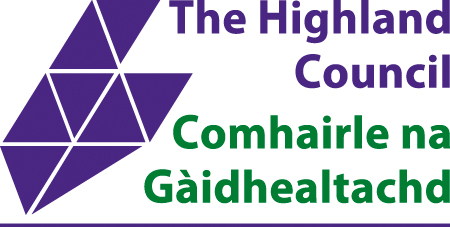Highland Council sets out proposals to help alleviate the cost-of-living crisis for communities

The Highland Council is to consider a £3.223 million package of proposals to help alleviate the impact of the cost-of-living crisis on Highland residents.
In the latest published figures from the Scottish Household Survey Report 2019, 33% of Highland households were in fuel poverty, compared with a Scottish average of 24%, and 22% of Highland households were in extreme fuel poverty compared with a Scottish average of 12%.
However, this survey predates the current energy price crisis, so the current scale in Highland is likely to be much greater.
Members will be asked to allocate £3.223m non-recurring funding from the council’s non-earmarked reserves for the provision of both direct support and community-led initiatives, as part of a number of recommendations at this week’s meeting of Highland Council.
Using these non-earmarked reserves, it is proposed to make non-recurring payments of £145 each to around 17,400 council taxpayers who are receiving some form of reduction from their council tax bills through means-tested Council Tax Reduction or exemptions from Council Tax, based on personal circumstances.
Members will also be asked to agree to an extension of free school meal payments to cover weekends during the remaining school holidays up to including Easter 2023.
Highland Council also intends to learn from the experiences of the pandemic and proposes to create a Highland-wide grant fund to support communities to respond to the cost-of-living crisis.
Community-led support enables a local response to address local needs which will complement any individual support payments.
Grants of up to £10k per organisation would be made available with the aim of this grant fund to enable community groups to provide local activities and support.
The proposed criteria for the fund are as follows:
- Provide community support initiatives that provide food/activities
- Enhance existing provision through extending local hours or introducing/increasing food provision
- Adapt existing provision to meet identified local needs
- Strengthen or establish food larders or food table provision
Members will also be asked to approve a recommendation to provide non-recurring funding of £0.050m to FareShare to purchase food for distribution across the Highlands.
In addition to the welfare services provided by the council’s Welfare Support team, the local authority funds Citizens Advice to provide income maximisation, debt and housing advice. The council is also engaging with COSLA on the impacts of the crisis and considering options available to local authorities to assist.
Many Council tenants in Highland are amongst our lowest income households yet face the highest energy costs due to utility company policies restricting social rented tenants to prepayment meters. Preliminary work has taken place to model some of the potential measures to achieve effective targeting of resources and use of new technologies for heating. In the meantime, the Housing and Property Committee approved the use of HRA balances of up to £160,000 this year to fund additional support to assist tenants directly with special independent energy advice and to access financial support.
Leader of the Highland Council, Raymond Bremner, said: “A key focus of the welfare proposals set out in this report is to enable Highland communities to eat, to keep warm, and to continue to live safely in their homes.
“The proposals are intended to help alleviate the significant pressures which are impacting households across the Highlands. We don’t have the legal or fiscal powers to decide the necessary legislative and structural changes, and financial packages of support, to mitigate or suppress the cost-of-living crisis for Highland residents. However, we will look to collaborate with the Scottish Government, with a view to engaging with utility companies to seek more preferential energy tariffs for social tenants in Highland.”
He added: “The council is also experiencing a cost crisis. We are experiencing significant pressures on our finances, predominately driven by the impacts of current soaring inflation. While we will do everything we can to look after the most vulnerable in our communities, we must also look at how we can reduce our tighten our own purse strings to make ends meet.
“We are facing a potential overspend of £9.6m against the current year’s revenue budget and the report to Council forecasts a budget gap of £40.9m for 2023/24.
“Given wider economic uncertainty, no absolute figure is provided for subsequent year budget gaps, but the gaps are anticipated to be significant and of a similar magnitude to 2023/24 if high inflation persists.”
Measures already underway to address the rising costs are to reduce the council’s asset base and in turn reduce energy usage. Asset rationalisation and a reduction in energy usage will also help the local authority meet its statutory net zero targets.







